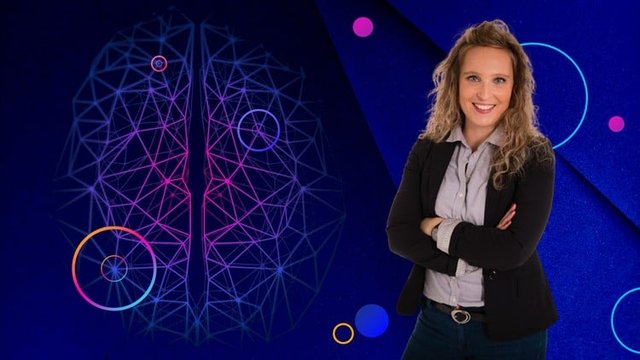
Marketing Psychology Masterclass | Neuromarketing Ideas 2025
Published 7/2025
MP4 | Video: h264, 1280x720 | Audio: AAC, 44.1 KHz, 2 Ch
Language: English | Duration: 1h 39m | Size: 1.74 GB
Master Marketing Psychology & Behavioral Science to Influence Buyer Behavior Ethically | Neuromarketing Ideas 2025
What you'll learn
Learn how emotional triggers, cognitive biases, and psychological cues influence how customers perceive, evaluate, and buy products or services.
Master Robert Cialdini's six principles of influence to create persuasive messaging that converts viewers into loyal customers ethically.
Explore how colors, music, scents, and visual stimuli influence brand perception, memory, and purchase behavior across digital platforms.
Craft psychologically optimized websites and call-to-action buttons that tap into user attention, clarity, and motivation.
Apply concepts like price anchoring, the decoy effect, and charm pricing to position your offerings strategically and increase sales.
Use urgency signals such as countdown timers and limited offers to drive engagement while maintaining ethical marketing standards.
Learn how to create emotional bonds and consistent touchpoints that lead customers to repurchase and advocate for your brand.
Understand where to draw the line between persuasive influence and unethical manipulation while maintaining brand trust.
Requirements
Proficiency in core marketing concepts such as segmentation, targeting, brand positioning, and funnel optimization.
Operational knowledge of analytics tools like Google Analytics, Hotjar, or Facebook Pixel for interpreting behavioral data.
Experience with digital ad platforms (Google Ads, Meta Ads Manager, LinkedIn Ads) for implementing psychological targeting.
Familiarity with UX/UI principles in website or landing page design, including tools like Figma, Webflow, or WordPress.
Comfort with A/B testing tools such as Optimizely, VWO, or Google Optimize to validate behavioral hypotheses.
Basic understanding of cognitive biases, behavioral economics, and neuromarketing concepts to apply theory into campaigns.
Ability to evaluate marketing copy and design assets for emotional triggers, subconscious cues, and behavioral nudges.
Motivation to apply research-backed techniques in real-time marketing strategy, backed by data and measurable outcomes.
Description
"95% of purchasing decisions are made subconsciously." In a hyper-saturated marketplace where attention spans are shrinking, and digital noise is constant, traditional marketing is no longer enough. If you're not using psychology to influence behavior, you're losing sales-period.Welcome to the most comprehensive, science-backed course on Marketing Psychology and Consumer Behavior-built for modern marketers who want results.Whether you're a digital strategist, entrepreneur, or brand designer, this course arms you with cutting-edge insights from neuroscience, behavioral economics, persuasion theory, and cognitive psychology. You'll uncover the psychological levers that make consumers click, engage, trust, and buy-and you'll learn to apply them ethically, with precision. Let's Talk Results:According to Nielsen, emotional campaigns deliver 23% higher ROI than rational ones.A study in the Journal of Consumer Research found that scarcity increases perceived value by up to 60%.Cialdini's 6 principles of persuasion-when used correctly-can boost conversion rates by up to 400%.This course shows you exactly how to apply those techniques in landing pages, email campaigns, ad copy, content strategy, and branding.What You'll Master Inside This Course:The neuroscience behind decision-making and how to tap into the System 1 brain for instant influenceBehavioral economics in real-world marketing: anchoring, decoy pricing, and the endowment effectThe psychology of urgency: how to use scarcity, FOMO, and countdowns to accelerate buyer actionHow brands like Netflix, Apple, and Amazon use habit loops, interface design, and color theory to lock in customer loyaltyReal-world breakdowns of social proof, emotional priming, subliminal cues, and brand storytellingTools like loss aversion and commitment bias that drive stickier customer experiencesHow to write copy that speaks to the emotional brain-not just the rational mindThe ethical boundaries of marketing psychology: where persuasion becomes manipulationAs Seth Godin says:"Marketing is no longer about the stuff you make but the stories you tell."We teach you how to tell the right stories-wired for memory, emotion, and action. Why This Course Is Different:This is not fluff. You'll get a tight, 2-hour course, filled with real-life case studies, campaign teardowns, scientific data, and tools you can apply immediately. No filler. No jargon. Just clear, actionable insights that work.By the End, You'll Know How To

esign landing pages that convert through subconscious cuesWrite call-to-actions that spark emotion and urgencyApply neuromarketing to branding, UX, and messagingBuild campaigns that are remembered, loved-and sharedIf you're ready to elevate your marketing from "meh" to mind-blowing, and build brands that connect at a psychological level.Enroll now. Master the science of consumer behavior. Build with intention. Market with impact.
Who this course is for
Marketers who want to master the psychological triggers behind what makes people click, convert, and stay loyal.
Business owners seeking to ethically increase brand engagement, sales, and trust using consumer behavior insights.
Digital marketing professionals aiming to optimize paid and organic campaigns through behavioral science and data.
Brand strategists looking to build emotionally resonant, psychologically sticky, and recall-worthy brand identities.
Content creators who want to write copy and craft visuals that tap into emotion, perception, and persuasive psychology.
Product managers interested in applying behavioral design to boost engagement, usability, and conversion flows.
UX/UI designers wanting to use brain-based principles to guide user attention, reduce friction, and drive decision-making.
Psychology and behavioral economics students or researchers exploring real-world applications of theory in business and marketing.